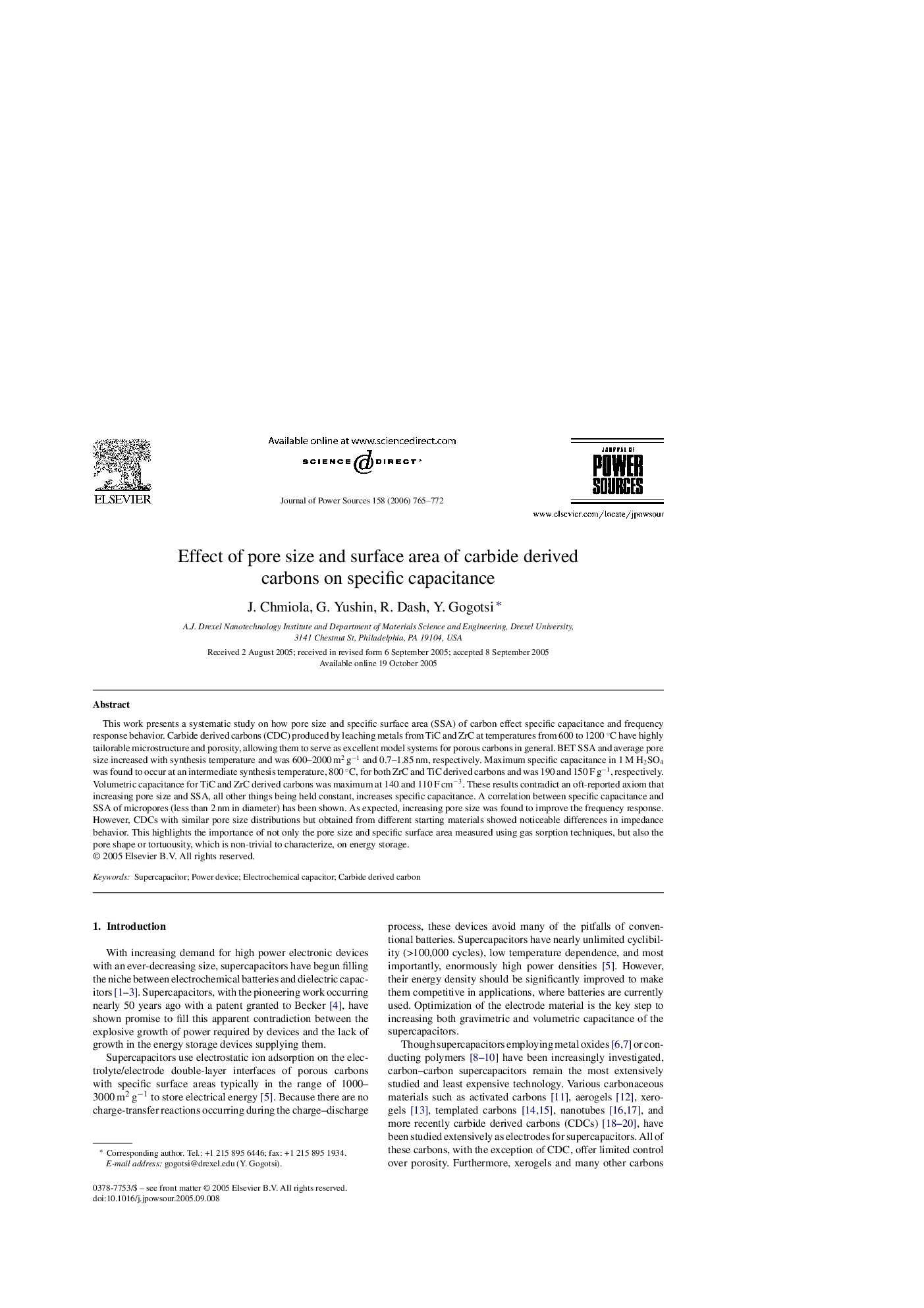| کد مقاله | کد نشریه | سال انتشار | مقاله انگلیسی | نسخه تمام متن |
|---|---|---|---|---|
| 1287632 | 973228 | 2006 | 8 صفحه PDF | دانلود رایگان |

This work presents a systematic study on how pore size and specific surface area (SSA) of carbon effect specific capacitance and frequency response behavior. Carbide derived carbons (CDC) produced by leaching metals from TiC and ZrC at temperatures from 600 to 1200 °C have highly tailorable microstructure and porosity, allowing them to serve as excellent model systems for porous carbons in general. BET SSA and average pore size increased with synthesis temperature and was 600–2000 m2 g−1 and 0.7–1.85 nm, respectively. Maximum specific capacitance in 1 M H2SO4 was found to occur at an intermediate synthesis temperature, 800 °C, for both ZrC and TiC derived carbons and was 190 and 150 F g−1, respectively. Volumetric capacitance for TiC and ZrC derived carbons was maximum at 140 and 110 F cm−3. These results contradict an oft-reported axiom that increasing pore size and SSA, all other things being held constant, increases specific capacitance. A correlation between specific capacitance and SSA of micropores (less than 2 nm in diameter) has been shown. As expected, increasing pore size was found to improve the frequency response. However, CDCs with similar pore size distributions but obtained from different starting materials showed noticeable differences in impedance behavior. This highlights the importance of not only the pore size and specific surface area measured using gas sorption techniques, but also the pore shape or tortuousity, which is non-trivial to characterize, on energy storage.
Journal: Journal of Power Sources - Volume 158, Issue 1, 14 July 2006, Pages 765–772